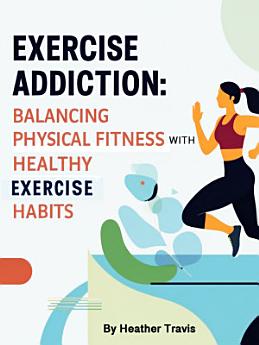Exercise Addiction: Balancing Physical Fitness with Healthy Exercise Habits
Heather Travis
Jan 2015 · Freegulls Publishing House
Ebook
112
Pages
family_home
Eligible
info
reportRatings and reviews aren’t verified Learn More
About this ebook
In gyms across the world, beneath the gleaming veneer of health and wellness culture, a hidden crisis unfolds as individuals who began exercising for legitimate health benefits find themselves trapped in compulsive patterns of physical activity that consume their lives, damage their bodies, and destroy their relationships while being celebrated and encouraged by a society that views exercise as inherently virtuous. Exercise addiction represents one of the most paradoxical behavioral addictions, where activities universally recognized as beneficial for physical and mental health become sources of obsession, compulsion, and suffering that can be as destructive as any substance abuse while remaining largely invisible due to cultural blind spots that make it nearly impossible to recognize when healthy behavior has crossed the line into dangerous compulsion.
The relationship between exercise and addiction challenges fundamental assumptions about what constitutes harmful versus beneficial behavior, as physical activity provides genuine health benefits, mood enhancement, and stress relief that make it difficult to distinguish between healthy enthusiasm for fitness and pathological compulsion that serves psychological rather than physical needs. Unlike addictions to obviously harmful substances like alcohol or drugs, exercise addiction hides behind the legitimate health benefits of physical activity while creating patterns of compulsive behavior that can cause severe physical injury, social isolation, and psychological distress.
Rate this ebook
Tell us what you think.
Reading information
Smartphones and tablets
Install the Google Play Books app for Android and iPad/iPhone. It syncs automatically with your account and allows you to read online or offline wherever you are.
Laptops and computers
You can listen to audiobooks purchased on Google Play using your computer's web browser.
eReaders and other devices
To read on e-ink devices like Kobo eReaders, you'll need to download a file and transfer it to your device. Follow the detailed Help Center instructions to transfer the files to supported eReaders.







